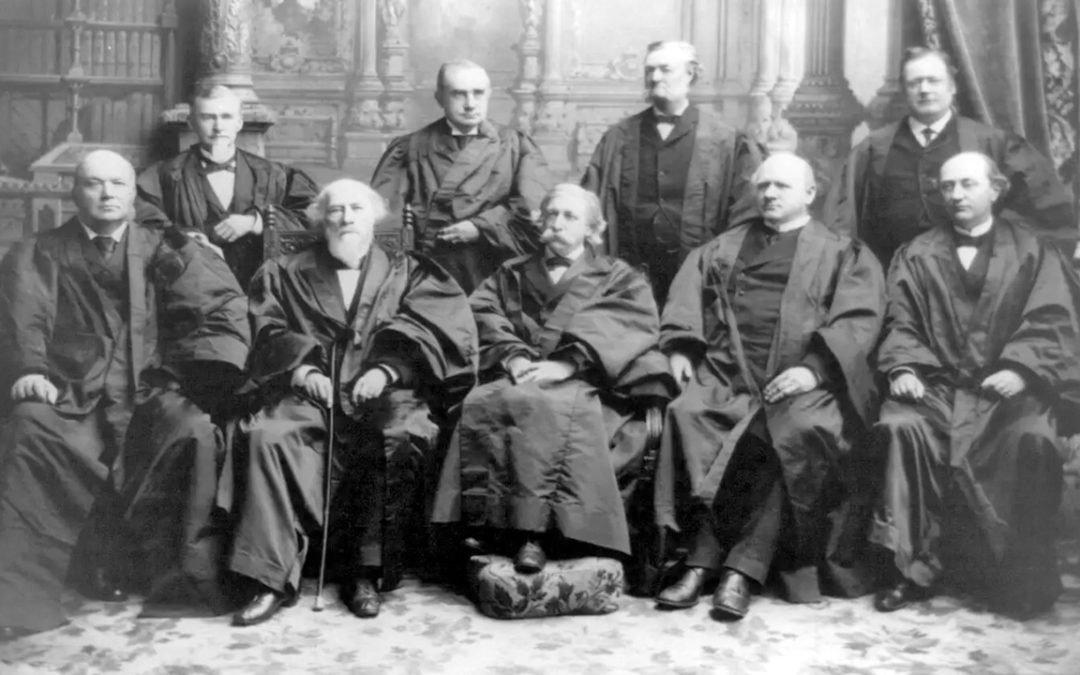
by Robert Bowie, Jr. | Jun 28, 2022 | Featured, Politics
I am willing to admit I’m a moron but who the hell are these “originalists”?
Supreme Court Justices Amy Coney Barrett, Clarence Thomas, and Brett Kavanaugh have all identified themselves as “originalists,” but it now looks like Alito and Gorsuch do too.
So what do these originalists believe?
Justice Amy Coney Barrett, when asked that question at her confirmation hearings, said: “I understand it [the Constitution] to have the meaning that it had at the time people ratified it. So that meaning doesn’t change over time and it’s not up to me to update it or infuse my own policy views into it.”
Okay, Let’s look at some history.
Since the originalists say they must interpret the Constitution based on the time it was ratified rather than interpret the evolution of the historical wisdom it has grown to contain, there is some “originalist” history that they may have overlooked.
The “originalist” history, back when our Constitution was ratified in September of 1787, means: (1) women could not vote or own property, (2) Black people were slaves and didn’t qualify as “people” and (3) interracial marriage was a crime that would get you jail time.
An originalist interpretation of the Constitution, if applied to the present membership of the Supreme Court, would eliminate two-thirds of the “originalists,” as well as a majority of the entire Court.
So Amy Coney Barrett should not vote and should surrender all property she owns and drop out of the Court. And what should they do about Clarence Thomas, or his marriage?
But it gets even more absurd and worse for the fantasy logic of these originalists:
“A Law repugnant to the Constitution is void,” wrote Chief Justice Marshall, the first Chief Justice of the Supreme Court, on February 24, 1803 when, in Marbury v. Madison, he declared unconstitutional a law passed by Congress and signed by the President, based on the Supreme Court’s right of “Judicial Review.”
Nothing, absolutely nothing in the Constitution gave Chief Justice Marshall and the Supreme Court this specific power of judicial review. It is not in the Constitution anywhere.
Marshall, however, believed that the Supreme Court should have a role equal to those of the other two branches of government, so he interpreted the “intent” of the Constitution even though the words were not in the Constitution.
So how can the “originalists” have any basis to review anything?
I’ll tell ya.
As an Economist correspondent recently pointed out, “5 of the 6 conservative Supreme Court justices were appointed by a Republican Senate majority that won fewer votes than the Democrats” and “3 of the 6 were nominated by a President who also won a minority of the popular vote.”
So where are we now?
Are we a democracy? Are we a republic? Or is this when we lose all that? Have you been watching the January 6th hearings?
The billionaire President who appointed three of these originalists, managed us for four years with lies and Twitter and, after he was voted out, more lies in order to organize an attack on our government based on the Big Lie of a stolen election, and all these lies were affirmed by Fox (not at all) News, Ingram and Carlson.
Isn’t it time to start the long hard revolution to take our country back?
The midterm elections have to be that revolution.
If the Trump support, the originalists, and Fox News win the House and the Senate for Republicans in the midterms, those Republicans will continue their coup d’état and attempt to overthrow our democracy. They have made no secret of this.
America has evolved beyond the originalists. We freed ourselves from a king once before. We freed the slaves. We recognized women’s right to vote. As a democracy we have created a history of humanitarian change, and are capable of great creativity and the capacity to govern with a big heart when we are not divided.
Let’s get back to being the US Again.

by Robert Bowie, Jr. | Jun 21, 2022 | Featured, Personal, Politics, Travel
In our class, the poet Elizabeth Bishop would teach poetry by taking any two poems and placing them side by side to see how they “illuminated each other” by comparison and contrast.
It was an exercise in both observation and communication but it also offered that fresh perspective on what was set in stone and had been taken for granted.
The more extreme the comparison and contrast the more it reawakens: A ripe apple and a red sports car? What makes them red? What makes them different? What makes them go? DNA and water versus oil and a gas engine?
How about like “politics” and “scuba diving”?
Let’s try it.
Well first, in contrast, they encompass two different worlds. One above water and one below. However, people have learned to communicate in both worlds, particularly in life-threatening situations.
How is that communication the same and different, and how can it offer a fresh perspective?
Through communication in politics, Donald Trump raised a quarter of a billion dollars ($250,000,000.00) from small dollar contributions from his supporters to “stop the steal,” despite overwhelming evidence that nothing got stolen. Furthermore, he has convinced his supporters not to watch the January 6th Committee hearings where this was revealed and validated.
So you can’t use Twitter underwater.
But in scuba diving you have hand signals, which is a little more primitive but just as effective for short urgent messages.
All diving is done in at least pairs with each diver responsible for his or her buddy. If you go too deep and become a victim of nitrogen narcosis — which is the song of angels calling you to come deeper to your death. Your buddy should grab your fin and signal with a hand gesture indicating the cutting of one’s throat and then point to the surface. It’s life or death.
During one dive in the outer islands of the Caribbean, I was randomly paired with two Midwestern middle-aged men who already were friends.
We agreed to go down to about 90 feet and swim in formation, like airplanes, to cruise along the deep edge of a cliff overhang and be each other’s eyes and ears.
One of my new buddies, our wing man at the time, banged his knife on his tank to get our attention, made eye contact, and excitedly pointed straight down. He spread his arms way out wide, gave the finger to us, and then put his right hand on his head at a 90-degree angle as if it was splitting his head in half down the middle with an ax. The other two of us got it and looked down into the dark for a “Big Fucking Shark!”
Later that afternoon, sitting side by side with me at the bar, my two Midwestern buddies good-naturedly unloaded all the liberal Democrat jokes they had in rapid fire in my direction, and with mock astonishment I countered them with my defenses and went on the attack. Quite naturally we had come to trust each other with our lives underwater, using sign language which we made up as we went along. We were friends.
I would love to meet them again and learn from them again and laugh. I want to sit on that barstool, turn to look at them and, with a perfectly timed pause, stop deadpan and say: “TRUMP???” And then spread my arms out wide, give them the finger and put my right hand on my head at a right angle as if it was splitting my head down the middle with an ax. I’d love to have them laugh at that, for us to laugh together.
I want to laugh with my Republican friends again and have us trust each other again with our lives.
It beats drowning in an angel’s call.
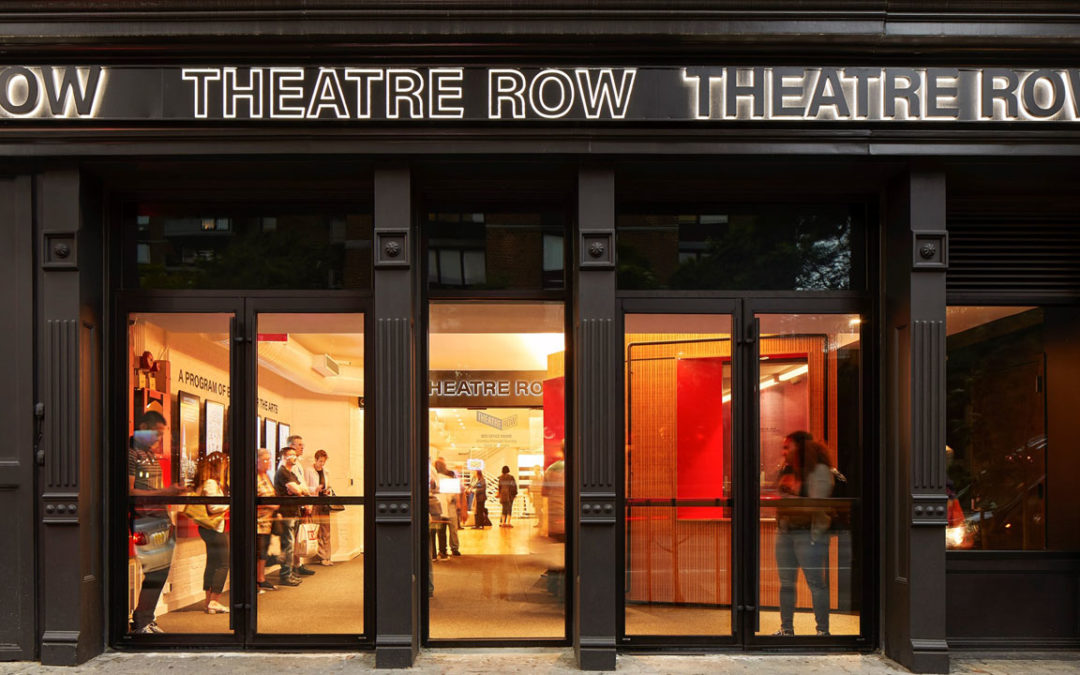
by Robert Bowie, Jr. | Jun 14, 2022 | Man Machine, Personal, Plays
I opened the New York Times last week and turned to the theater section and read the headline:
“Dear Evan Hansen’ and ‘Tina’ to End Their Broadway Runs
“The musicals, both of which lost steam after the pandemic shutdown, will close in late summer.”
The article pointed out that before the pandemic Evan Hansen was making $1 million a week in sales but now, because of Covid, successful plays were again falling by the wayside. Tina, about the life and music of Tina Turner also had been doing very well.
Over the last two years, as I watched New York theaters close and reopen and struggle to sell tickets, this kind of news had become the soundtrack of my life. I was used to it by now.
I turned to check my email and noticed an email from Mind the Art Entertainment (MTAE), the producers for my play The Grace of God & the Man Machine, scheduled to open off-Broadway on November 21. It read:
It is with great sadness that I announce that I, as Founder and Resident Artistic Director of Mind The Art Entertainment, have formally submitted a recommendation to our Board to close our company after 15 years.
Producing in NYC is no longer viable for us after so many losses related to the pandemic, including 6 cancelled/closed back to back productions.
This can not be happening!
Almost two years after the remarkable success of a Onaje — my 90-minute one-act at FringeNYC in October of 2018 — after MTAE became its producer, and after several rewrites and three professional table reads lead by dramaturg/ director Kevin R. Free, we had a two-act play with an explosive finish. It ran fast and smooth like a river to a waterfall. We were ready.
Then, after that last table read in March of 2020, the pandemic hit and we all had to wait but we were ready.
In October of 2021, we were surprised and blessed to be offered a virtual trial performance directed by Van Dirk Fisher at the Reliant Theater, who was doing cutting-edge online productions to expansive theater-starved online audiences. It was well received.
We were so ready and this play was perfect for the politics of its time. Its time was now.
Early this year, it appeared that New York theater was opening up, and MTAE booked Theater Row for November to open a week-and-a-half after the midterm elections. That would be perfect.
Now, after almost four years of anticipation and preparation, we have a road-tested redemptive two-act play, rich with true American characters, timed to be performed in November after the midterm elections, but Covid variations were again on the rise.
And just like that, it is over.
The producers sent heartbroken apologies to everyone and have even offered to transfer the off-Broadway lease at Theatre Row free to support a new producer, but it will be next to impossible to mount the play unless a new team is in place by the end of this month.
Yes, I am heartbroken.
But throughout my whole life, I have been blessed by the opportunity provided by crossroads and disasters.
If you are a professional producer for New York theater, or if you know someone who is, just let them know I’m not dead yet and I would be happy to send them the script — but two weeks may not be enough time. (You can click the Contact link in the menu.)
Yes, I know it is almost impossible. But as Hamlet says, “the readiness is all.”
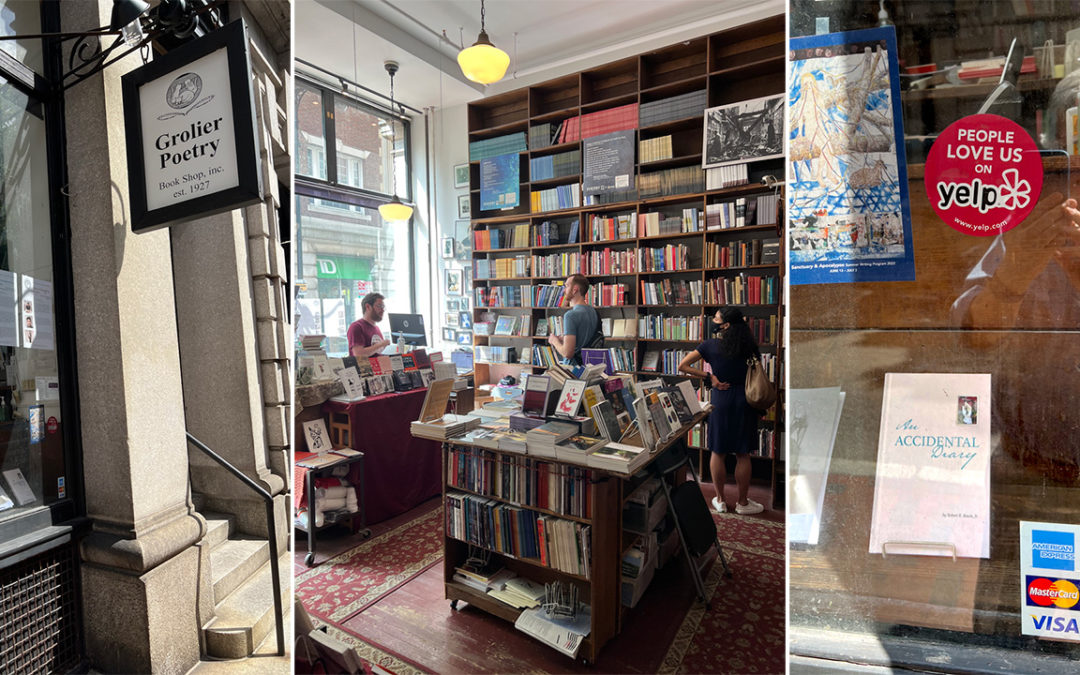
by Robert Bowie, Jr. | May 31, 2022 | Featured, Poetry
As a young boy, I lived in the sports pages and played on sandlot baseball diamonds after school. I dreamed about the big leagues. My dreams and my future were one.
As a young man, things became a little more complicated.
I couldn’t really hit a curve ball and I started noticing that the second question that people asked grown-ups after their name was “What do you do?”
Businessman? Doctor? Lawyer? With high school, a wider and more terrifying world was opening up.
I stumbled on T.S. Eliot and his poem, “The Love Song of J. Alfred Prufrock,” in which he wrote about the early 20th century. It is set in Boston’s Beacon Hill.
It seduced me from my fading childhood into my predestined future with its opening lines:
Let us go then, you and I,
When the evening is spread out against the sky
Like a patient etherized upon a table;
Ezra Pound pronounced this poem as “modern” — part of the dark reality of the new century and its new poetry. And so it was for me, standing there, in the Grolier Poetry Book Shop with J. Alfred Prufrock in my hand, a freshly minted teenage groupie at a one-room bookstore with towering bookcases.
Grolier was intimidating, but it held a world of new alternative heroes as I was losing my childhood and falling into the shadows of some job that would define me when asked “What do you do?”
How did this happen?
Posted on the front door of Grolier Poetry Book Shop was a blunt sign: “No Law. No History. No Economics. No Biology. No Physics. No Chemistry. Only Poetry!”
Gordon Cairnie, one of the founders, would sit on an old couch and hold court with published poets who were different in every way than the people I knew.
He waited for some unsuspecting student to walk in and ask if the store sold law books or the like.
Gordon would unload on the innocent walk-in and turn all the heads of the browsing readers when at the top of his voice he would answer, “No! But what difference does it make to you because you can’t even read the sign!”
Everyone would laugh in this freshly reconsecrated space and the young student was sure never to return again.
The point of entry to this new world was the “dare to be different” commitment to admit out loud that you were a poet and a believer, not a tourist.
I was way too shy.
This was a lot different than sandlot baseball, but within it there was still room to dream.
Over the years, the Grolier had become a focus of poetic activity in the Cambridge area, itself a magnet for American poets because of the influence of Harvard University. Poets such as John Ashbery, Robert Bly, Robert Creeley, Donald Hall, and Frank O’Hara were regulars at the store during their time as undergraduates at Harvard. The poet Conrad Aiken lived upstairs from the store in its early days.
Numerous other poets and writers are noted as “friends of the Grolier,” including Russell Banks, Frank Bidart, William Corbett, E. E. Cummings, T. S. Eliot, Lawrence Ferlinghetti, David Ferry, Allen Ginsberg, Denise Levertov, Marianne Moore, Charles Olson, Robert Pinsky, Adrienne Rich, Ruth Stone, James Tate and Franz Wright, to name just a few.
The bookstore claims to be the oldest continuous bookshop devoted solely to the sale of poetry and poetry criticism.
This September it will be 95 years old.
I was committed to keeping up with the rest, going to law school and succeeding — and I did. But I couldn’t forget the voices at Grolier and my prior fear of admitting out loud I wanted to be a poet.
When my travels would lead me to Boston, I would always go back to make sure it was still there. I would always buy a book or two to justify my visit and my love of lounging there for awhile.
Last Saturday, I was in Cambridge. I brought two copies of my first book of poems, An Accidental Diary, to give to friends I planned to see.
That morning in the hotel room, an idea hit me. I looked up the Grolier Poetry Bookstore and before I let better judgment kick in I called and asked for the proprietor, James Fraser. I told him I had two copies of a book, explaining one poem was runner up for the Robert Frost Foundation Poetry Award and another had been chosen for an upcoming anthology in Baltimore. I asked him if he would consider putting them up for sale on the shelves.
I told James I had been going into the bookstore for over 50 years and had studied with Professor William Alfred and Elizabeth Bishop whose books were on the shelves and pictures on the walls.
He invited me to drop by. I immediately walked my two books over and told him more of my story. I encouraged him to read “Summer Thunderstorms” and “The Facts of Life” to show the range of the work.
He leafed through the book as we continue to talk. There were a few people browsing as there always are and I took a moment to take a deep breath and just be surrounded by the place.
James looked up and smiled. He took both books out of my hand, looked up at me again, took one for the shelf and then put one book prominently in the front window.
Things this wonderful don’t really happen in real life but sometimes they do.
When I walked back to the hotel empty-handed looking down at the pavement with a stupid grin on my face, I felt like I had circled the bases on the sandlot!
I had always dreamed about the big leagues. But after a very long time my dreams and my future were again one.
(“An Accidental Diary” is also available on Amazon in paperback and Kindle.)
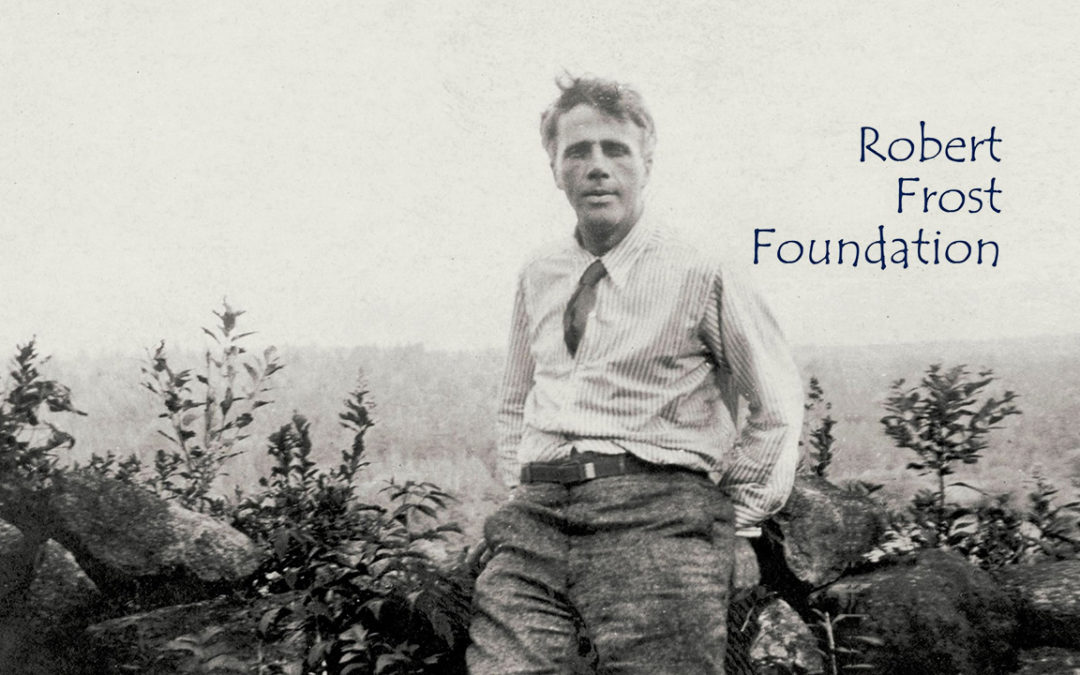
by Robert Bowie, Jr. | May 17, 2022 | Personal, Poetry
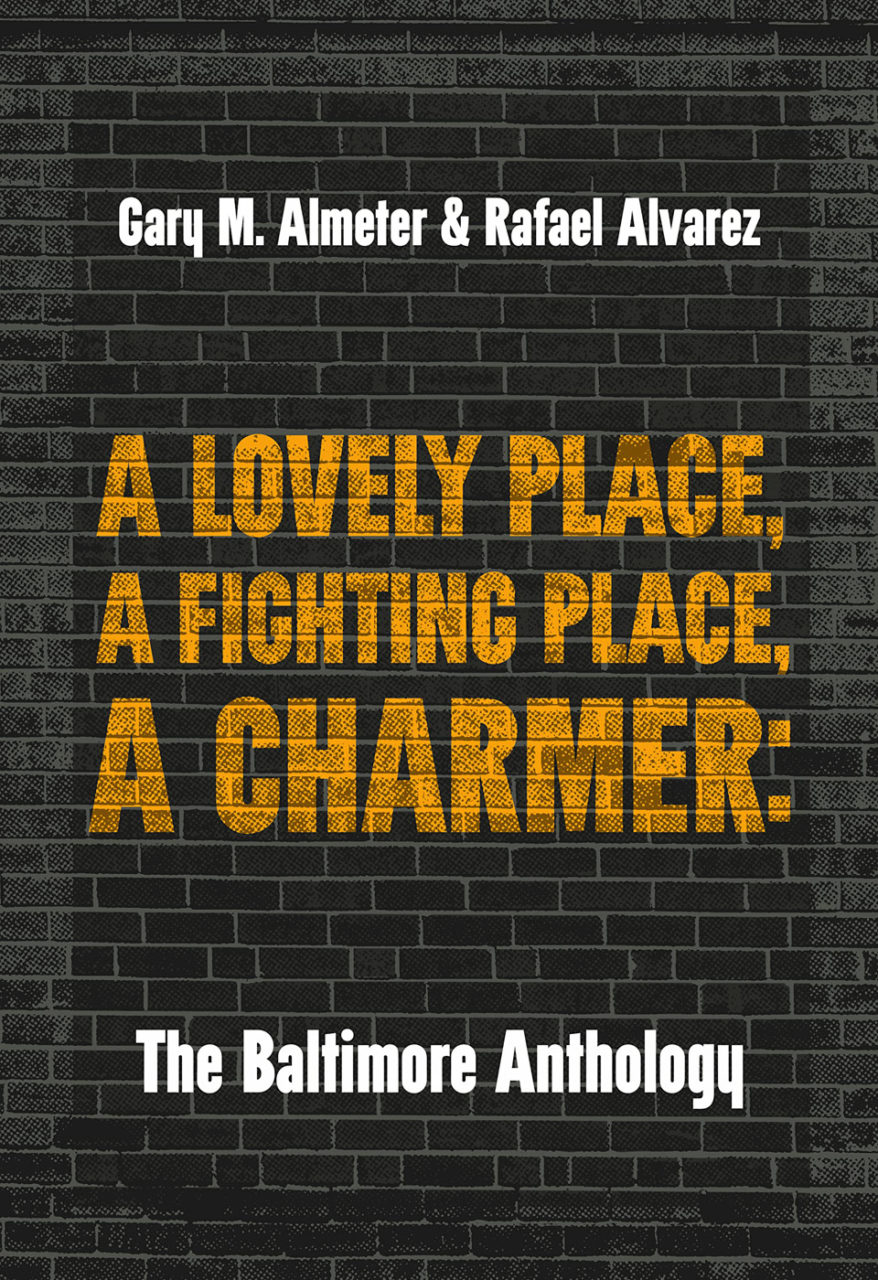
I started this blog several years ago in an effort to explore if there could a professional life in the arts after a full and satisfying first career.
Yesterday, I was notified that I had been chosen as a runner up for the Robert Frost Poetry Award for 2022 for my sonnet, “Summer Thunderstorms.” and last month, my sonnet, “City Snow,” was chosen to be included in the upcoming Belt City Anthology: A Lovely Place, A Fighting Place, A Charmer: The Baltimore Anthology.
Both entries are from my book, An Accidental Diary: A Sonnet a Week for a Year.
Help me celebrate and prove that there is the second life, after all!
Please buy a copy of these books and give them away, and ask that they be re-gifted by order of the author.
Here is the Robert Frost Foundation entry:
Summer Thunderstorms
As with the generations long since dead
The fire and brimstone of the status quo
Wakes him up from the safety of his bed
And lightening frames him in the window
And photographs him in its afterglow.
Tonight he feels his present and its past
As the summer storm also comes and goes.
Conclusions are foolish in a world so vast.
For at the edges of his world and heart
Far past the farthest boundary of his grasp
Where ideas cause worlds to come apart
He lives in this place that will not last.
He loves his life more than he can explain
And leaves the window open to hear the rain.
“Week 35” from An Accidental Diary
(Available now on Amazon in paperback and Kindle.)






